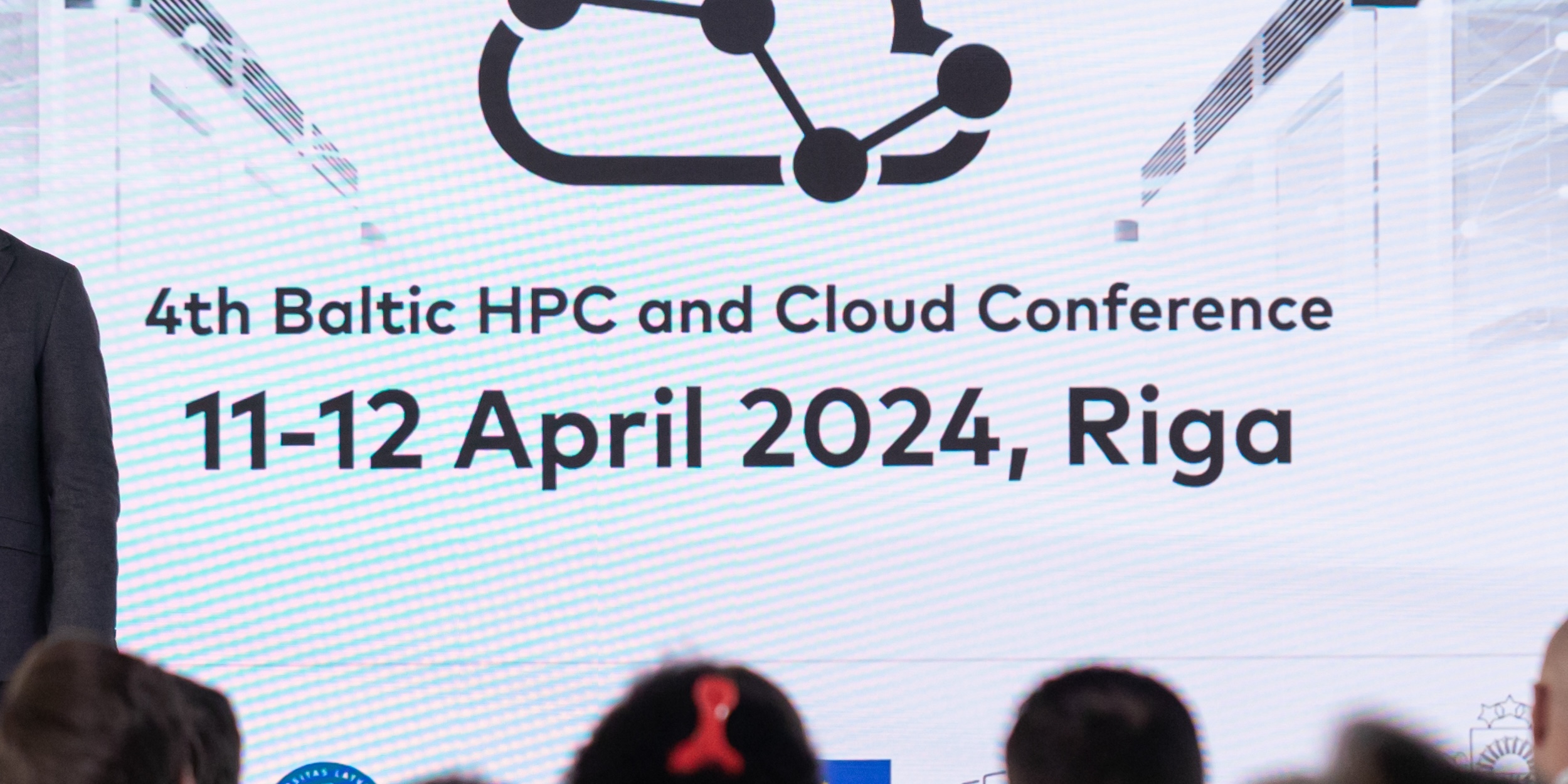On April 11-12, Johan Kristiansson and Thor Wikfeldt from ENCCS attended the 4th Baltic HPC and cloud conference in RIGA, Latvia where they discussed Supercomputing, AI, and Quantum Computing. The main organiser, NCC-Latvia have been good friends and long-time collaborator of ENCCS. Co-organised by other Baltic and Nordic EuroCC Competence Centres (including ENCCS), the conference took place at the Science and Innovation Centre at Riga Technical University, on the tranquil island of Kīpsala along the Daugava River, connected to Riga Old Town by the iconic Vansu Bridge.
The conference
The 4th Baltic HPC and Cloud conference united individuals from the Baltic and Nordic countries involved in supercomputing and related technologies like AI and Quantum Computing. Talks by researchers, technical experts, and decision-makers were interspersed with panel discussions and pitch sessions, creating a well-rounded program. Extended coffee breaks provided an optimal environment for networking, idea generation, and collaboration.
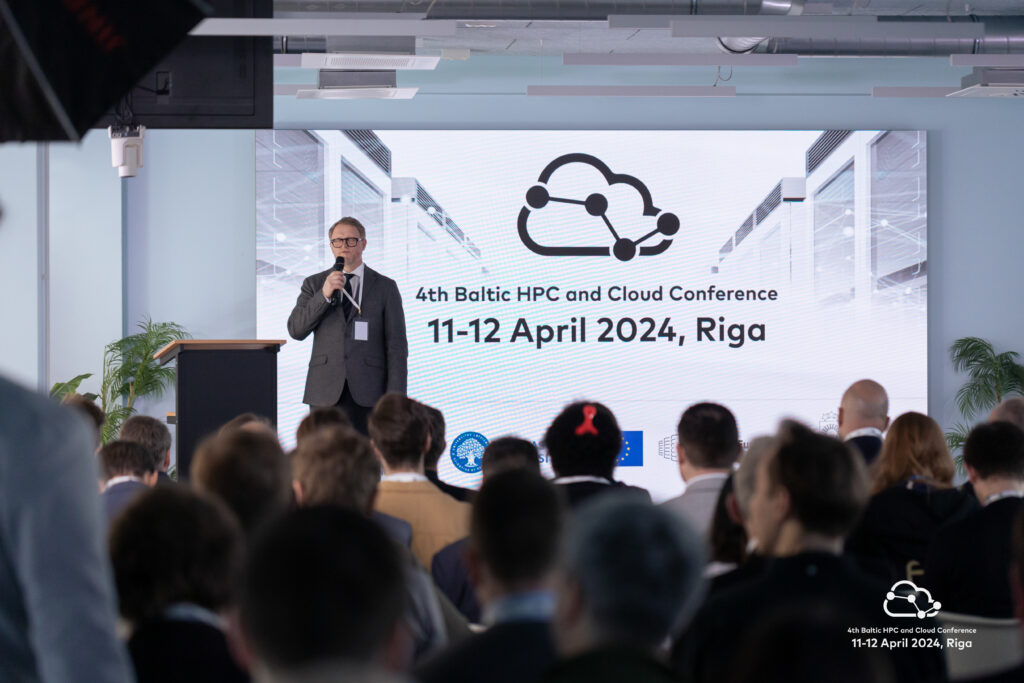
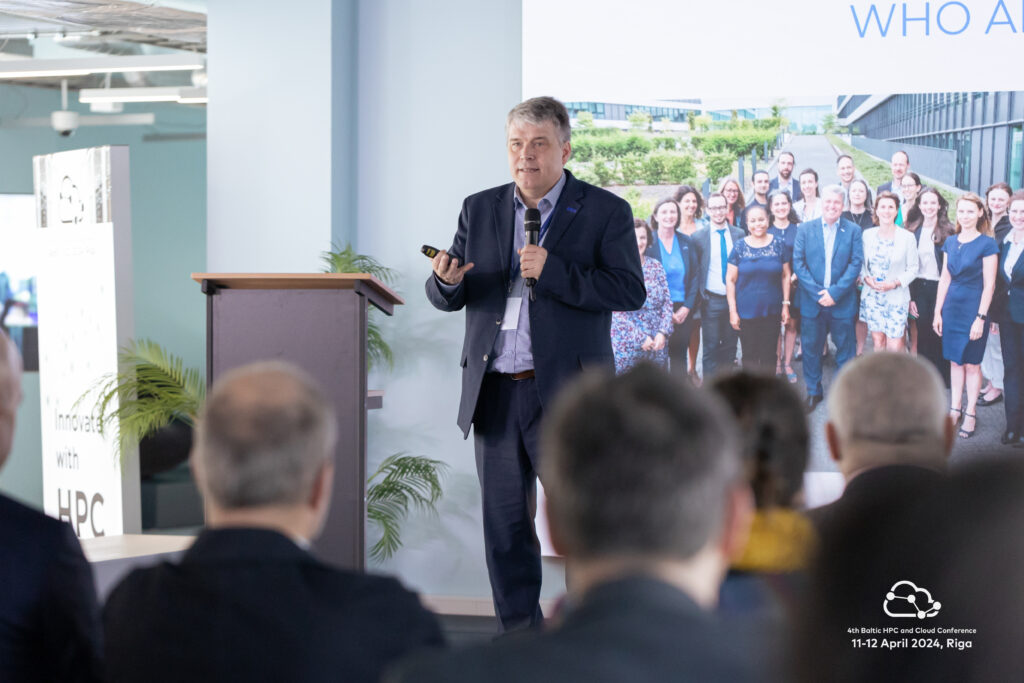
After an opening talk by Talis Juhna, rector of Riga Technical University, EuroHPC JU director Anders Dam Jensen took the stage. He delivered a characteristically engaging keynote talk titled “The Future of European HPC - EuroHPC and Beyond”. It covered existing infrastructure, ongoing projects, and future directions. Exascale supercomputers were a strong focus, as well as quantum computers and new major investments in AI development in Europe.
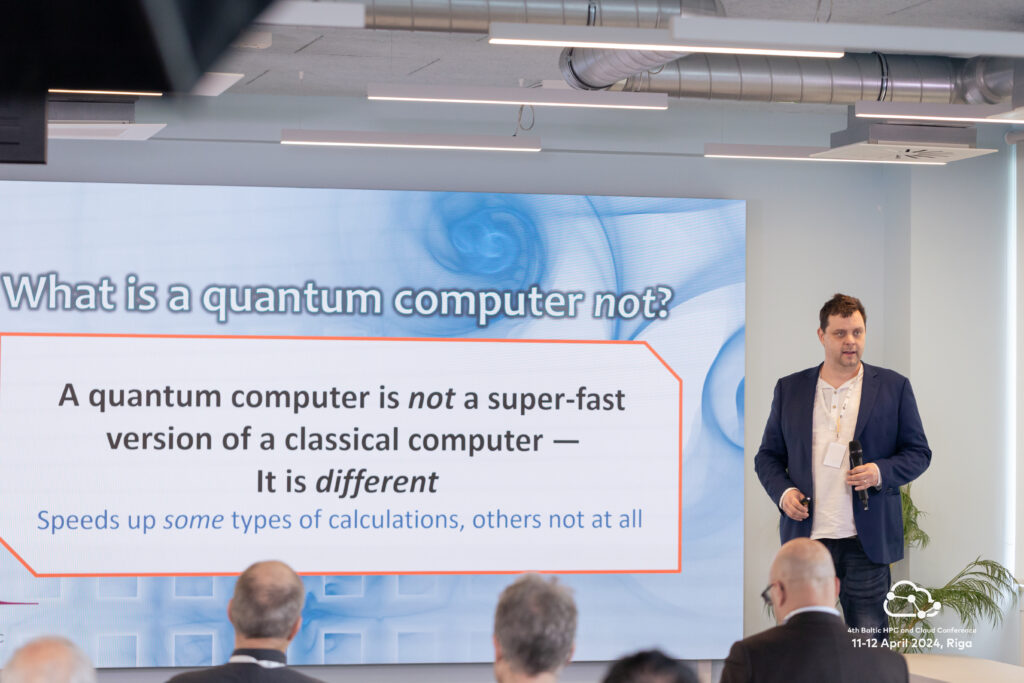
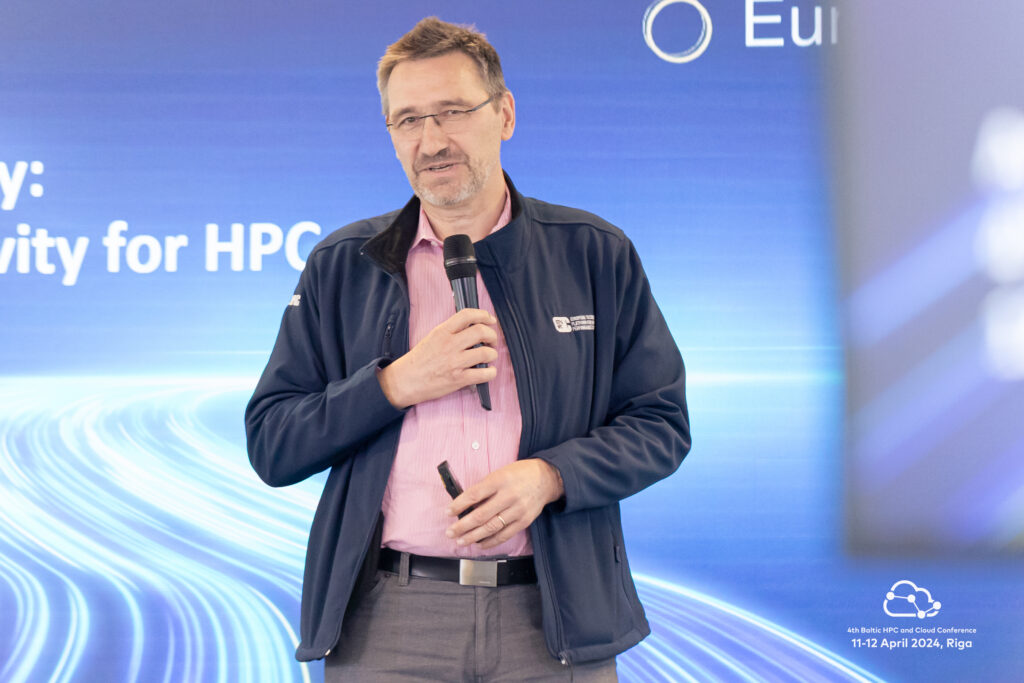
Other plenary talks were by Andreas Wierse (“Supercomputing for Revolutionizing Research, Development, and Innovation Efforts”). As Managing Director at SICOS BW GmbH he discussed how European initiatives can support companies to adopt supercomputing in their R&D. Per Öster, Director of the Advanced Computing Facility at CSC in Finland, engaged the audience with the many achievements made in operating Europe’s largest supercomputer LUMI. Finally, Mikael Johansson, manager of Quantum Technologies at CSC, presented the immense future potential of quantum computers.
Sweden at the conference
Sweden, and in particular ENCCS, featured prominently in the conference program. In the first panel session titled “Governmental overview on supporting the use of HPC”, Malin Sandström from VR (the Swedish Research Council) delved into Sweden's public policy shaping in HPC. She highlighted the forthcoming Swedish EuroHPC JU system Arrhenius. It is going to be a pivotal resource for supercomputing users spanning academia, industry, and the public sector. Torbjörn Jonsson, coordinator of European Digital Innovation Hubs (EDIHs) at RISE, outlined the work accomplished in EDIHs. Potential collaborations between EDIHs and EuroCC NCCs was also discussed and highlighted. This collaboration aims to offer private companies a comprehensive service spectrum, from foundational digitalisation services to advanced supercomputing support.
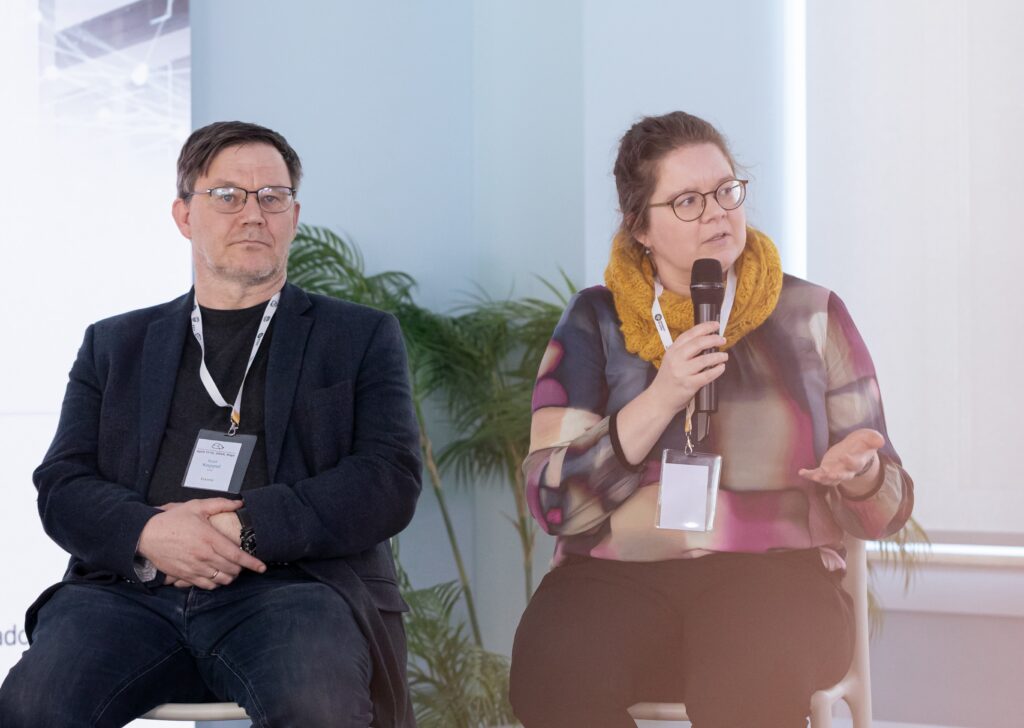
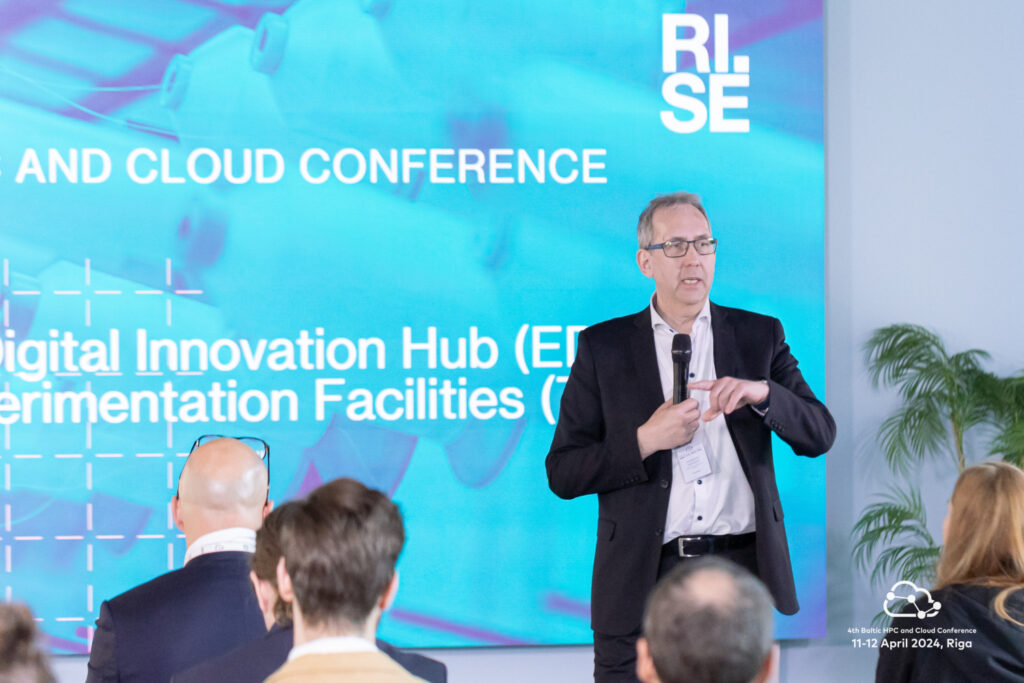
On the second day, Thor Wikfeldt moderated an insightful panel discussion titled "The Future of HPC in Three Baltic Countries". The delegates dissected current challenges, future trajectories, and mutually beneficial Baltic Nordic collaboration avenues. Johan Kristiansson delivered a thought-provoking presentation titled "Unifying HPC, Cloud, and Edge Computing with ColonyOS". The session was dedicated to emerging developments in HPC interfaces and user support services. Additionally, Thor showcased success stories from ENCCS training collaborations with Centres of Excellence in the section "Training Triumphs: Maximizing Impact with External Domain Experts".

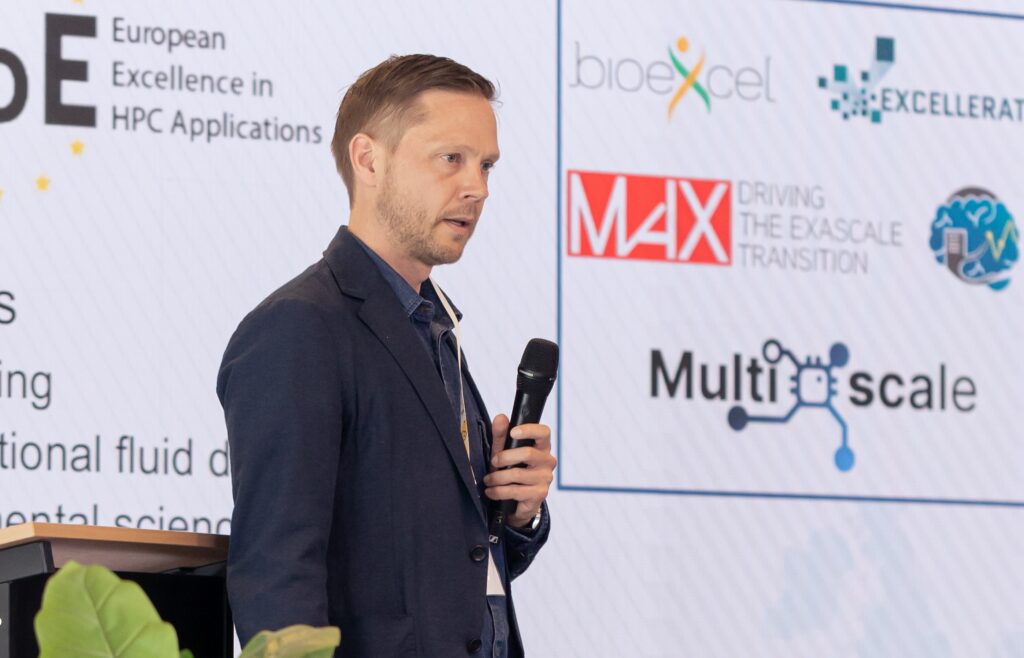
We extend sincere thanks to our collaborators from the NCCs in Lithuania, Estonia, Denmark, and Finland, and especially the hosts in Latvia. This opportunity to connect, learn, and identify collaborations is invaluable for ENCCS. We eagerly anticipate the 5th iteration of this conference next year!

